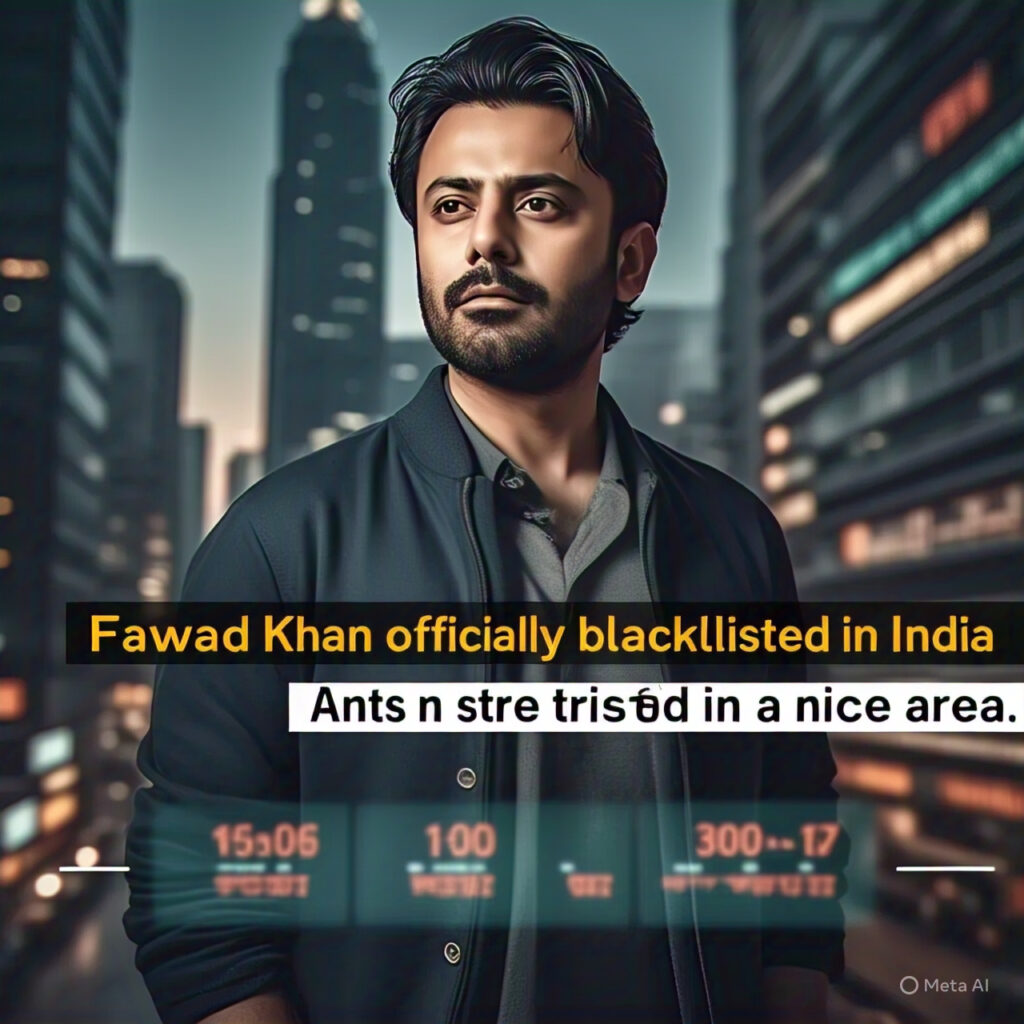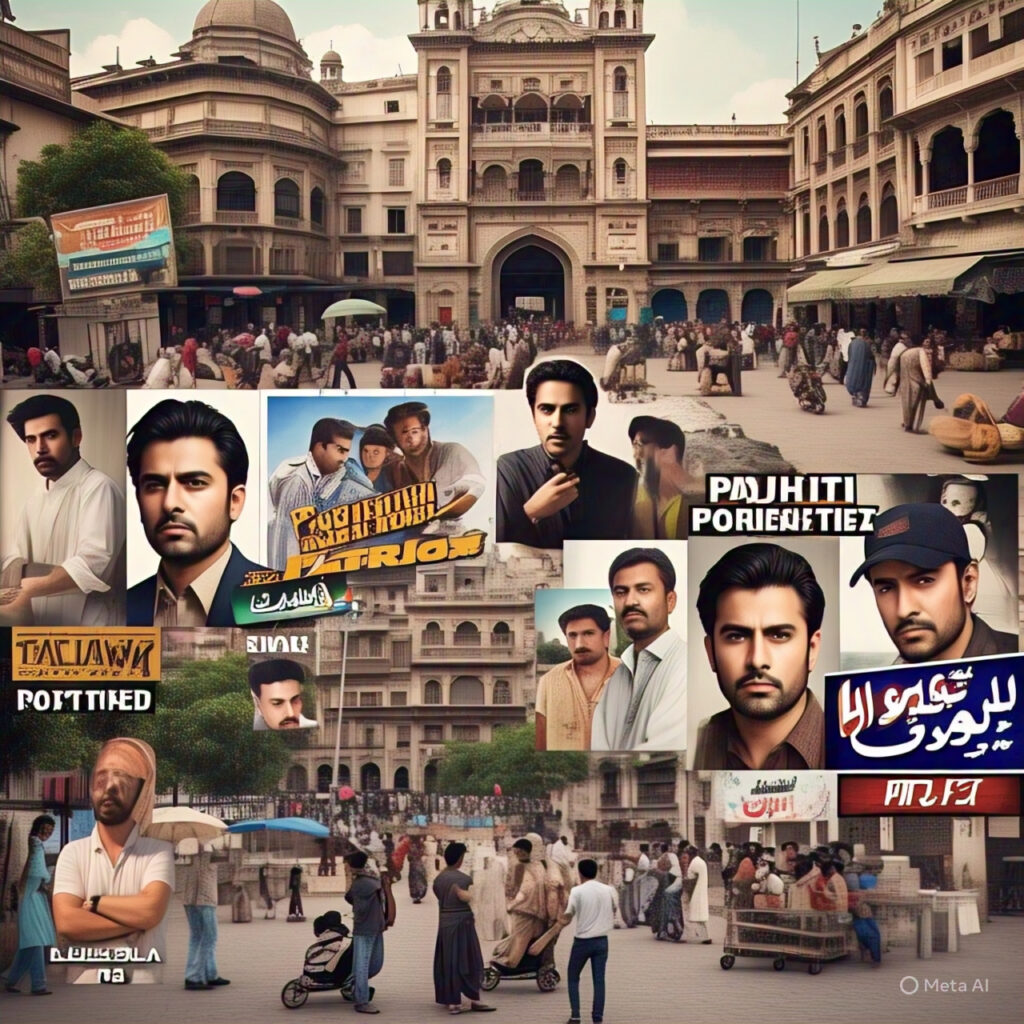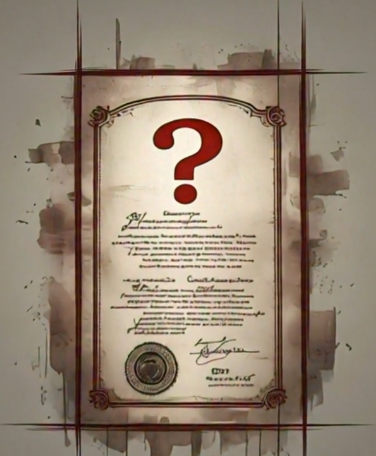Fawad Khan Abir Gulaal ban – A Movie Ban That Shocked the Subcontinent
What happens when a reel-life romance collides with real-world tensions? And can cinema survive the bullets of politics?
Reader Engagement Question:🙋♂️
Would you watch a film knowing its lead actor represents a country currently under fire for cross-border terror activities? Or would you join a nationalistic call for a ban?
Research Basis:📚
After analyzing everything across the internet and gathering real-world insights, the Bhussan.com team shares this friendly, helpful article.
Breaking News Update (April 24, 2025): Fawad Khan Officially Blacklisted❗
Just hours after Abir Gulaal‘s teaser crossed 10 million views online, the Ministry of Information and Broadcasting (MIB) officially issued an advisory to all streaming platforms and cinema exhibitors:
“No content featuring Fawad Khan shall be distributed or exhibited across Indian territories until further notice.”
This government-issued directive turns the industry pressure from FWICE into a legally-binding notice, effectively placing Fawad Khan on an official blacklist. The Ministry cited “public sentiment and national interest” as the primary reasons.
🧨 Industry Fallout Begins
-
Netflix India has postponed the digital deal for Abir Gulaal.
-
Multiplex giants like PVR-INOX and Cinepolis have removed the film’s trailers from circulation.
-
Distributors in Maharashtra and Punjab have reportedly backed out from release obligations.
The fallout is now legal, economic, and cultural, with repercussions expected to hit Indo-Pak art collaborations for years.

The Spark: Why the Pahalgam Terror Attack Sparked the Fawad Khan Abir Gulaal Ban🎭
On April 22, 2025, the serene town of Pahalgam in Jammu & Kashmir witnessed a heinous terror attack that shook the entire nation. The incident, which claimed several innocent lives and left dozens injured, reignited long-standing tensions between India and Pakistan. As emotions ran high, public anger spilled over into cultural domains, particularly Bollywood.
At the center of the latest controversy is Abir Gulaal, a romantic drama starring Pakistani heartthrob Fawad Khan and Indian actress Vaani Kapoor. The movie, slated for a July 2025 release, has now found itself in the eye of a political-cinematic storm.
FWICE Steps In🎤
The Federation of Western India Cine Employees (FWICE), known for representing the interests of Indian film workers, issued a strong statement:
“We will not allow Abir Gulaal, or any project involving Pakistani artists, to release in India. This is a blanket boycott.”
The ban, according to FWICE President B.N. Tiwari, is a moral stance, not just a political one. The industry, he claims, cannot turn a blind eye to the emotional trauma faced by Indians while continuing cross-border collaborations.
“Last time it was “Ae Dil Hai Mushkil… Just a week before the release, the Uri attack happened. Now, the incident happened in Pahalgam about 10 days before the release of Abir Gulal. The two incidents are very similar.. or maybe it’s Fawad Khan’s fate.”


🇮🇳 Bollywood’s Dilemma: Art vs. Nationalism in the Fawad Khan Abir Gulaal Ban
Bollywood has long been a soft-power tool in Indo-Pak relations. Films like Veer-Zaara, Bajrangi Bhaijaan, and even Raazi have tried to depict cross-border narratives with sensitivity. But in times of national tragedy, art often becomes collateral damage.
So, is the ban justified? Or is it a knee-jerk reaction to a tragedy that’s being politicized?
Let’s break it down.
-
Cultural Sentiment: The public outrage is understandable. National security is a red-line issue.
-
Economic Fallout: Abir Gulaal had already secured distributors and deals for an all-India release. The ban could mean a massive financial loss.
-
Precedents: After the 2016 Uri attack, films featuring Pakistani artists like Ae Dil Hai Mushkil faced similar backlash. History is repeating itself.

Industry Divided: Bollywood Reacts to Fawad Khan Abir Gulaal Ban🎬
The ban has left Bollywood sharply divided:
🎭 In Support of the Ban:
-
Anupam Kher tweeted: “Nation first. Always.”
-
Kangana Ranaut said, “We don’t need artists from terror-exporting countries.”
🎭 Against the Ban:
-
Swara Bhasker called the move “short-sighted and populist.”
-
Anurag Kashyap urged for “art to transcend borders.”
This has sparked a larger conversation about whether films and filmmakers should bear the brunt of diplomatic failures.
Can FWICE Legally Enforce the Fawad Khan Abir Gulaal Ban?🧑⚖️
Technically speaking, FWICE is a union, not a government body. Their “ban” is more of a non-cooperation directive. While this can create enormous pressure on theatres and distributors, it is not enforceable by law.
However, theatre owners often comply out of fear of public backlash or possible protests.
Legal Observations:
-
No court order bans Abir Gulaal as of now.
-
Producers can challenge such bans under Article 19 (Freedom of Speech & Expression).
-
Previous legal precedents suggest courts usually side with filmmakers unless national security is directly involved.

Global Film Community Reacts to the Fawad Khan Abir Gulaal Ban🌐
International film critics, journalists, and artists are observing this ban closely.
-
Toronto Film Festival Director Cameron Bailey tweeted support for “creative freedom across borders.”
-
Pakistani filmmaker Shoaib Mansoor condemned the ban as “an attack on cultural diplomacy.”
There’s growing global concern that Indian cinema may be turning inward, away from cross-cultural narratives and collaboration.
A Long History Cut Short: Indo-Pak Cultural Ties and the Fawad Khan Abir Gulaal Ban🕊️
India and Pakistan have a long and layered history of cultural synergy:
-
1950s: Indian radio aired Pakistani ghazals.
-
1980s: Ghulam Ali and Mehdi Hassan held concerts across Indian metros.
-
2000s: Pakistani actors like Fawad Khan, Mahira Khan, and Atif Aslam were Bollywood regulars.
Each time political tensions rose, art became the first casualty. The Abir Gulaal ban is just the latest chapter in this cyclical narrative.
What the Stars Say: Fawad Khan and Vaani Kapoor on Abir Gulaal Ban💔
Fawad Khan:
“I unequivocally condemn the Pahalgam terror attack. My thoughts are with the families of the victims. But I believe we must separate art from politics.”
Vaani Kapoor:
“Cinema is a unifier. Silencing it in anger only deepens divides.”
Their statements were met with mixed reactions — appreciation from liberals, and backlash from nationalists.

